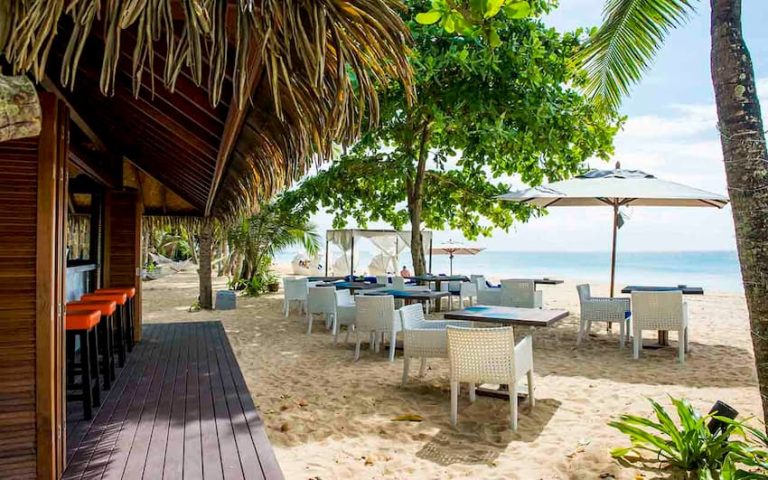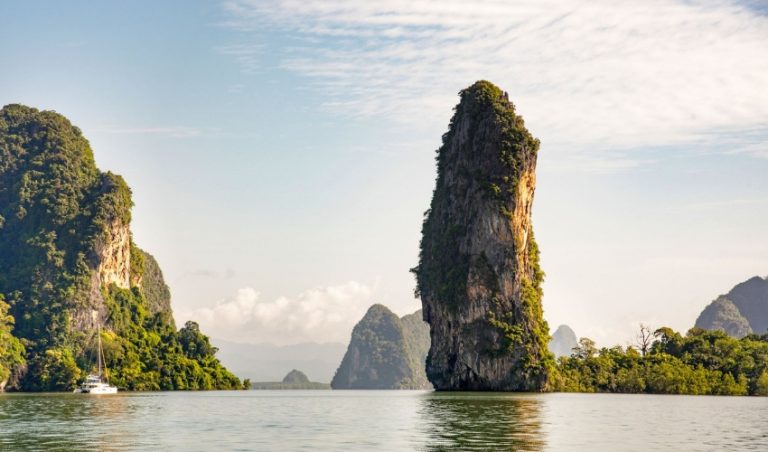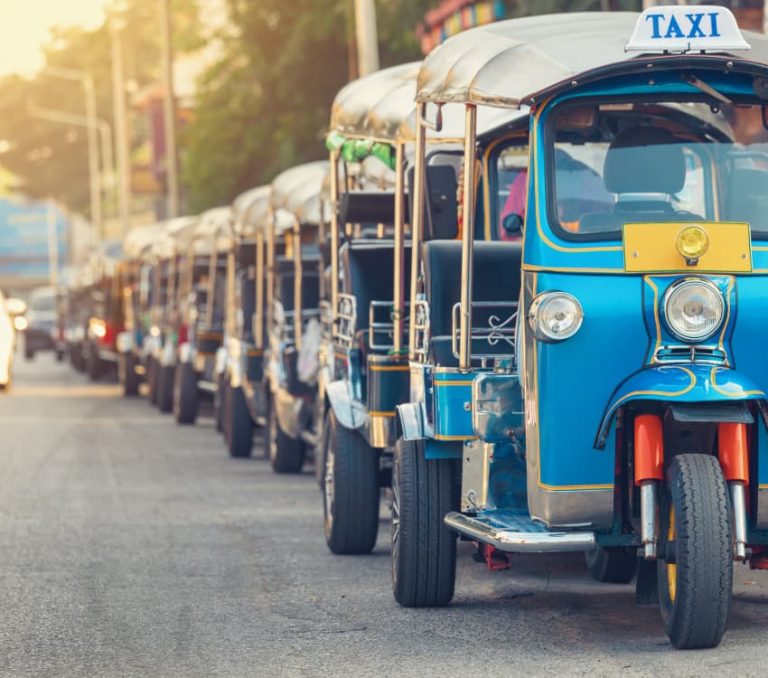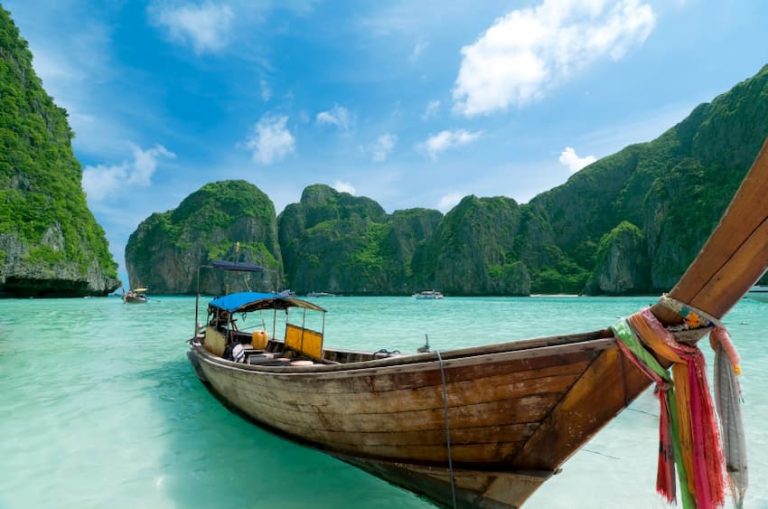Travelling opens doors to new experiences, cultures, and breathtaking landscapes. However, the rise in global tourism has placed immense pressure on local communities and ecosystems. Sustainable travel ensures that our journeys have a positive impact, benefiting both the environment and the people we meet. At Aleenta Retreat Chiang Mai, we are committed to eco-conscious hospitality and believe that every traveller can make a difference. This guide will help you embark on a sustainable travel journey with practical, easy-to-follow tips.
What is Sustainable Travel?
Sustainable travel means making choices that reduce your environmental footprint while supporting local economies and preserving cultural heritage. It involves travelling in a way that respects nature, minimises waste, and contributes positively to local communities. By adopting sustainable habits, you help protect the destinations you love for future generations to enjoy.
The Three Pillars of Sustainable Travel
Understanding sustainable travel starts with three fundamental principles:
- Environmental Responsibility – Reduce carbon emissions, conserve natural resources, and protect wildlife.
- Social Responsibility – Respect local cultures, support local businesses, and engage with communities ethically.
- Economic Responsibility – Ensure tourism dollars benefit local economies by choosing independent businesses over global chains.
How to Travel Sustainably
1. Choose Eco-Friendly Accommodation
Where you stay plays a crucial role in your travel footprint. Look for accommodations that implement sustainable practices such as reducing plastic waste, conserving water, and using renewable energy.
- Stay at eco-conscious resorts like Aleenta Chiang Mai, Aleenta Phuket, and Aleenta Hua Hin, focusing on sustainability through energy-efficient designs, organic dining, and community engagement.
- Opt for locally owned guesthouses or eco-lodges to support the community directly.
- Check if your hotel has certifications like Green Globe, EarthCheck, or Travelife.
2. Reduce Your Carbon Footprint
Transportation is one of the most significant contributors to greenhouse gas emissions. Consider these options for greener travel:
- Fly less, stay longer. Instead of hopping between multiple destinations, immerse yourself in one place for a more authentic experience.
- Choose direct flights whenever possible, as take-offs and landings produce the most emissions.
- Use public transport, cycle, or walk. Chiang Mai is a fantastic city to explore on foot or by bicycle.
- Try eco-friendly transport such as electric tuk-tuks and hybrid rental cars.
3. Eat and Shop Locally
Supporting local businesses strengthens the community and reduces environmental impact.
- Dine at farm-to-table restaurants like The Garden at Aleenta Retreat Chiang Mai, which sources fresh, organic ingredients from local farms.
- Visit local markets such as Warorot Market and Sunday Walking Street to buy handmade crafts and regional delicacies.
- Avoid mass-produced souvenirs. Instead, invest in handmade products crafted by local artisans.
4. Respect Wildlife and Nature
Many travel experiences involve interactions with nature and animals, but it’s essential to do so responsibly.
- Avoid elephant riding or animal performances that exploit wildlife.
- Choose ethical sanctuaries like Elephant Nature Park, where rescued elephants roam freely.
- Stick to marked trails when hiking to prevent environmental damage.
- Never take coral, shells, or plants from nature reserves.
5. Pack Light and Smart
Packing light makes your journey easier and reduces fuel consumption on flights.
- Bring reusable items such as a water bottle, tote bag, bamboo cutlery, and a refillable toiletries kit.
- Pack versatile clothing from sustainable materials like organic cotton or recycled fabrics.
- Avoid single-use plastics; many cafes in Chiang Mai offer water refill stations.
6. Conserve Energy and Water
Simple habits can make a huge difference:
- Turn off lights, air conditioning, and electronics when leaving your accommodation.
- Reuse towels and linens instead of requesting daily changes.
- Take shorter showers and report any leaks to hotel staff.
7. Engage with the Local Community
Travelling sustainably also means respecting and embracing the culture of the places you visit.
- Learn basic Thai phrases like Sawasdee (hello) and Khop Khun Ka/Khrub (thank you).
- Dress modestly when visiting temples and religious sites.
- Support community-led tourism initiatives that benefit locals directly.
- Avoid giving money to children on the streets, as this can encourage child exploitation.
8. Travel During Off-Peak Seasons
Over-tourism can strain resources and impact the local way of life. Consider visiting destinations during the shoulder or low seasons.
- Chiang Mai is busiest from November to February. For a quieter, more enjoyable experience, plan your visit in May–June or September–October.
- Off-peak travel helps distribute tourism income more evenly throughout the year.
9. Participate in Sustainable Activities
Explore eco-friendly and cultural experiences that promote responsible tourism.
- Join a sustainable cooking class that teaches traditional Thai dishes using organic ingredients.
- Take part in reforestation projects or clean-up events to support the local community.
- Visit ethical handicraft villages to learn about traditional weaving, pottery, and woodworking techniques.
10. Leave No Trace
A simple yet powerful rule: leave a place as beautiful as you found it.
- Dispose of waste properly and recycle where possible.
- Avoid using plastic straws, cups, and bags.
- Be mindful of noise pollution, especially in rural or sacred areas.
Sustainable Travel Starts with You
Sustainable travel is more than a trend—it’s a commitment to protecting our planet while responsibly experiencing the wonders of the world. By making conscious choices, we can ensure that future generations will have the same opportunities to explore and enjoy.
At Aleenta Retreat Chiang Mai, we are passionate about eco-conscious hospitality and invite you to embrace sustainable travel with us. Whether you’re staying in Chiang Mai, Phuket, or Hua Hin, every step towards sustainability makes a difference.
Join us in making travel a force for good. Let’s explore responsibly, support local communities, and preserve the beauty of our world—one journey at a time.
Related Articles
- Walking Tour Of Chiang Mai
- Sustainable Travel Tips for Chiang Mai
- Where the Locals Eat in Chiang Mai
- Sustainable Hotels & Resorts in Thailand
- Exploring the Markets in Chiang Mai
Aleenta Retreat
Chiang Mai
Chiang Mai
189 Soi Ban Mai Lang Mo 18,
Suthep, Muang Chiang Mai District,
Chiang Mai 50200
T: +66 (0)52 090 333












